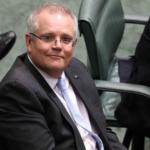Christian Porter Defamation Case: Should He Have Fought On?

Christian Porter and the ABC have reached a settlement via mediation, ending the defamation lawsuit brought against the national broadcaster by the former Attorney General.
It is understood that no financial payments were made to Mr Porter.
The backstory
Christian Porter launched a defamation case against the ABC earlier this year following a story by reporter Louise Milligan about a cabinet minister who was accused of a historical rape. It did not name Mr Porter.
The ABC story reported that a letter had been sent to Prime Minister Scott Morrison containing the allegation.
Mr Porter came forward some days after the report identifying himself as the minister in question, and vehemently denying the allegations made against him.
Settlement terms
No settlement money will be exchanged, but the ABC will pay the costs of mediation and place an editor’s note on the article stating that the ABC did not intend to suggest Mr Porter had actually committed the alleged offence.
The note states, “… both parties accept that some readers misinterpreted the article as an accusation of guilt against Mr Porter. That reading, which was not intended by the ABC, is regretted.”
The settlement comes just a day before a preliminary hearing in the Federal Court to decide whether the bulk of the ABC’s defence should be thrown out.
Defences to defamation
It is understood that the ABC’s primary defence was that the article was substantially true.
In terms of the law, if the court were to find the imputations contained in the article were defamatory, which would require a finding the former Attorney General could be identified through it, then the onus of proof would have been placed on the broadcaster to prove ‘on the balance of probabilities’ (more likely than not) that the imputations were true.
It is understood the ABC also relied on the defence of qualified privilege.
The defence can apply in certain instances such as where there is:
- Fair and accurate report of proceedings of public concern,
- Duty to publish in circumstances where there is an interest in receiving the information. or
- Discussion about government and political matters.
Conflict of interest
Mr Porter has had his own issues in recent days, losing his barrister, Ms Sue Chrysanthou who took on the defamation case after providing advice to the friend of the deceased woman who made the rape allegations, and helping to make the allegations public.
Last week, Justice Thomas Thawley ruled that Ms Chrysanthou did have a conflict of interest and she was forced to resign from Mr Porter’s legal team.
Earlier this week, all parties called an urgent case management hearing, but it was abandoned at the last minute due to the out-of-court settlement.
War of words
Despite the case being formally over, the war of words between the parties continues.
Mr Porter says the ABC has been forced into a “humiliating backdown” over the “sensationalist” and “one-sided” story.
“They regret the outcome of that article,” Mr Porter told media. “What I wanted was for the ABC to acknowledge that the way in which they reported this was sensationalist and wrong,” he said.
Howeverm the ABC has responded saying that, “The ABC has not said that it regrets the article… The ABC stands by the importance of the article, which reported on matters of significant public interest. The article was not ‘sensationalist’. It was an accurate and factual report on a letter that had been sent to the Prime Minister and two other senior politicians.”
The ABC has stood by its reporter Louise Milligan.
Cabinet reshuffle
Mr Porter was removed from his role as Attorney General in a cabinet reshuffle when he first announced his intention to launch legal proceedings against the ABC.
He is now the Minister for Industry, Science and Energy and Resources and has indicated that he will continue his political career.
Should Mr Porter have fought on?
Some believe that if Mr Porter were really innocent of the allegations, he should have taken the case to a hearing – especially given the reputation damage already done to him.
This, some feel, could have enabled him to achieve a formal legal finding in his favour, made the ABC pay damages and vindicated him in a positive way in the eyes of the law.
However, others understand the decision given the stress and financial costs of legal proceedings, as well as the time it can take for a case to reach a hearing.
They believe that ‘mud sticks’, in other words that the damage to Mr Porter’s reputation has already been done, and that little will be achieved through taking the case all the way to a defended hearing.
The reputation of the man who was once touted as a potential future Prime Minister now seems uncertain.








